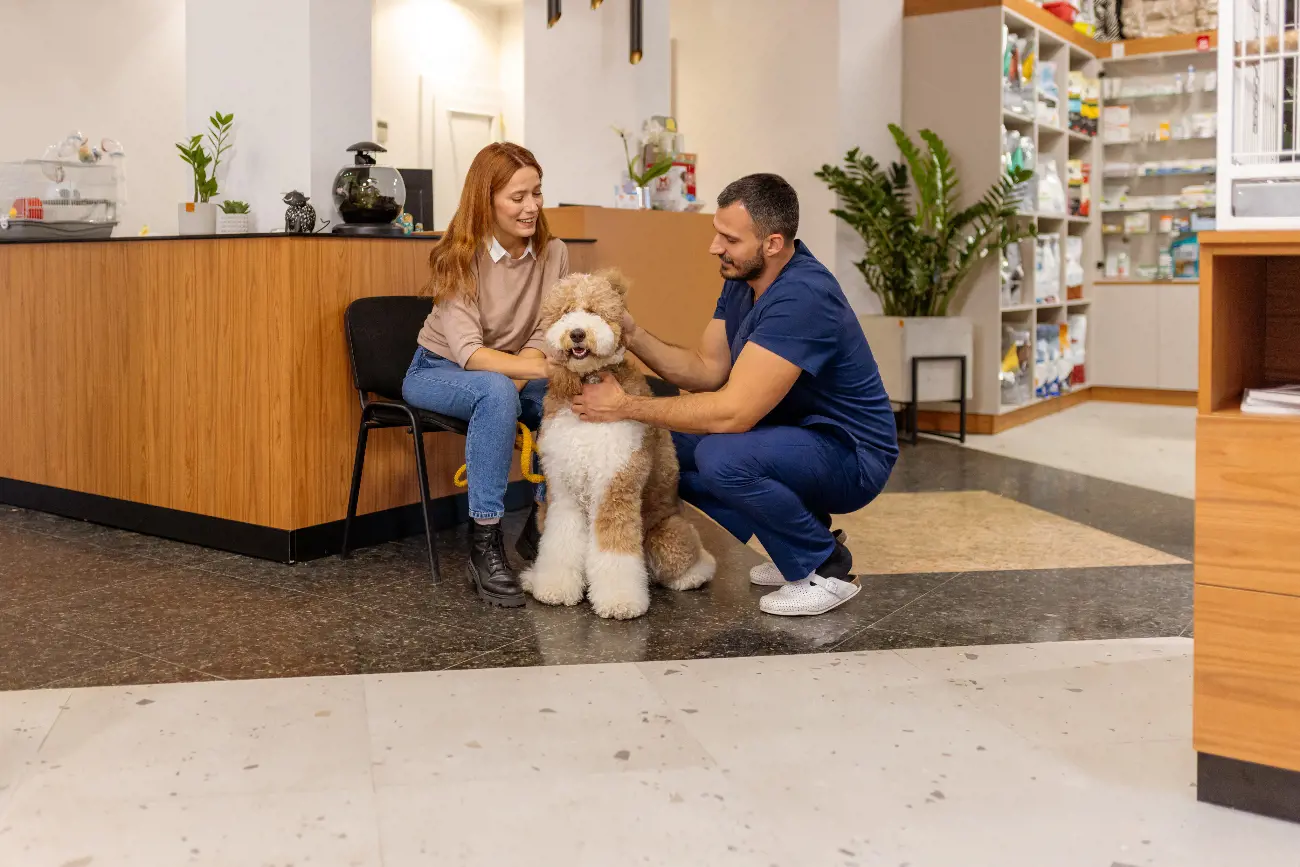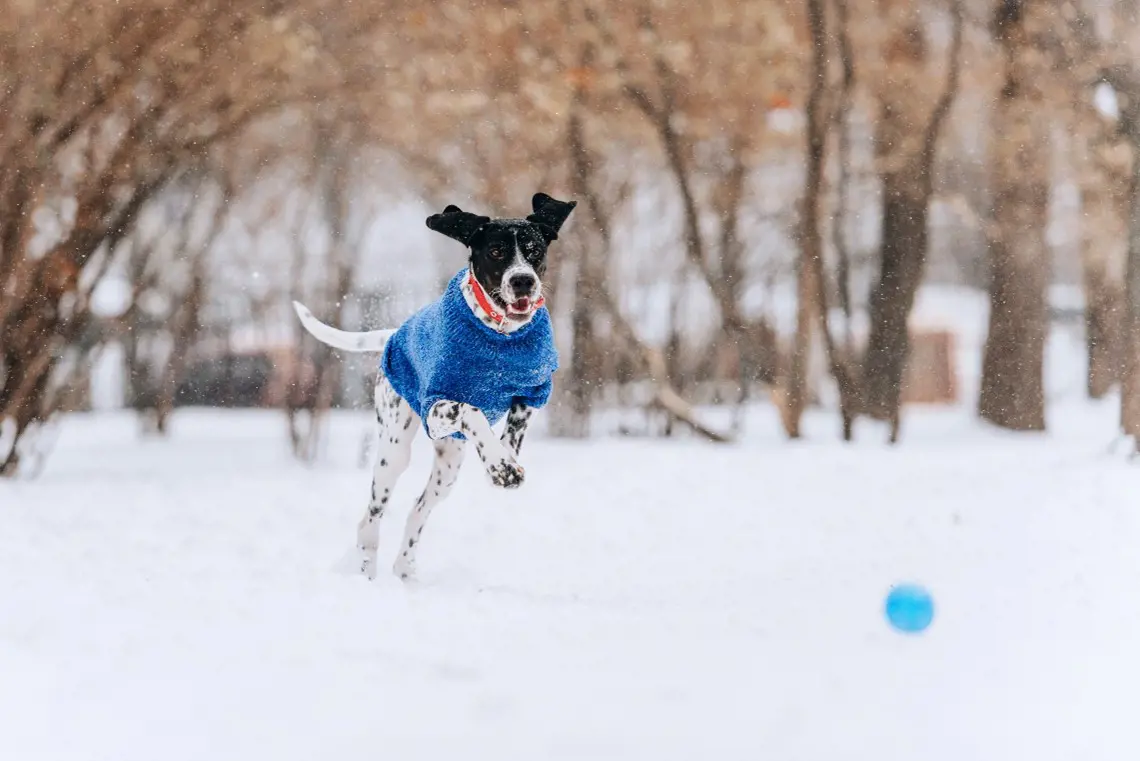How to help your dog if it suffers from anxiety
23rd September, 2019

Anxiety isn’t just something that humans struggle with – dogs can get anxious, too. As a responsible owner, you should try to learn how to identify signs of anxiety in your dog so you can spot the symptoms and help calm their nerves.
Here we’ll take a look at some of the common causes of anxiety in dogs, what to look out for, and how to help your four-legged friend overcome any stress.
Whether you have a pedigree pooch or a mongrel, anxiety can impact a pet’s quality of life and stop them from enjoying all the fun activities that dogs would naturally do.
If you’re not sure if your pooch is experiencing anxiety, a vet will be able to help. Here at Purely Pets, all of our dog insurance policies include access to a 24-hour helpline so you can get fast, free advice from a qualified veterinary professional.
What are the main causes of anxiety in dogs?
There are many different reasons why dogs may experience anxiety. Some can be related to what happened in their early lives; others can be linked to our lifestyles and how we treat them. Let’s take a closer look:
1. Early exposure
Recent research by the Scottish SPCA and Edinburgh University suggests that canines bred on puppy farms display higher rates of fear, anxiety and aggression than other dogs.
That’s why it’s so important to buy responsibly, from a reputable breeder, where you can meet your pup’s parents and discuss any health or genetic issues directly with them.
If you buy from a good breeder they may have already done some of the basic socialisation and training to start you off on the right path.
2. Being left alone
We hear a lot about separation anxiety in dogs and how leaving them alone for prolonged periods of time can be detrimental to their mental health.
Dogs Trust advises that you don’t leave a pup alone for more than four hours at a time, so if you work full time you need to carefully plan how you’ll meet your canine companion’s basic needs.
Dogs that experience multiple rehoming, abandonment or neglect as puppies or throughout their lives can also be susceptible to anxiety, so if you adopt a dog from a rehoming centre this is certainly something to be aware of.
The Blue Cross shared some telltale signs of separation anxiety in dogs. Look out for your pooch displaying any of the following signals:
Just after you leave the house…
- Increased heart rate
- Panting
- Pacing
- Salivating
- Need to go to the toilet
- Manic activity
- Chewing things with your scent
When you return…
- Overly excited
- Wet from excessive drinking or salivating
3. Phobias
Some dogs can display signs of anxiety when they’re scared of something. Perhaps they hate loud noises like fireworks or thunder? Maybe they’re scared of riding in the car? Or being around noisy children?
Whatever the fear, anxiety and stress can present itself in different ways, from cowering or trembling to barking and aggression.
As a responsible owner, it’s down to you to spot these signs in your hound and take action accordingly.
4. Illness
It’s worrying when we get ill, and it’s no different for our pooches. If they’re suffering from a painful condition, their worry and pain may present as anxiety.
If only our dogs could talk and tell us how they felt. Unfortunately, it’s up to us to spot the signs.
Having the right insurance for your dog in place can help get your pup back to full health as quickly as possible and minimise the stress and anxiety illness or disease can cause.
5. Ageing
As we get older, we might not be able to function as well or as quickly as we used to – and it’s the same for our canine pals.
Old age can affect their cognitive functions, which, in turn, makes them feel more vulnerable and anxious in otherwise ‘normal’ situations.
What are the symptoms of anxiety in dogs?

As Battersea Dogs’ and Cats’ Home points out, here are the common signs that your pet pooch may be experiencing anxiety:
- Excessive panting
- Tail between their legs
- Licking their lips
- Ears pinned back
- Raising their paws
- Pacing up and down
- Yawning
How do you calm an anxious dog?
If you think your pup is displaying the signs of anxiety, the best thing you can do is talk to your vet.
They will be able to determine the cause of the anxiety – environmental or physical – and advise you on the best way of dealing with it.
Exercise can be a great, natural way of helping to relieve some of the symptoms of anxiety, as it allows your pooch to use up all its excess energy and boost serotonin levels, which make them feel good.
You can also use distraction techniques to take their mind off the anxiety. Learning new tricks or playing with a new toy may help to alleviate their stress.
Some people put the radio on when their dog is home alone. Hearing voices and music can be a way of delaying the onset of separation anxiety but shouldn’t be used as a long-term solution.
If your dog needs a little more help, you could try a Dog Appeasing Pheromone (DAP). There are many different types available but the Dogs Trust suggests Adaptil as a trusted brand.
Battersea suggests these top five tips to help your pup manage stress, which you can read more about on their website:
- Work out what’s causing it
- Gain their trust
- Keep things calm
- Boost their confidence
- Discourage neediness
Protecting your pet with dog insurance
Whether your dog is experiencing anxiety as a symptom of illness or not, it’s best to protect your pet with specialist dog insurance. That way, you can make sure they get the help they need.
As well as the 24-hour vet helpline, we can offer up to £15K of vet fee cover so you can choose the level of protection that’s right for your pet, and your pocket.
Our handy Manage My Policy portal also gives you instant access to your documents, meaning you can manage your dog insurance documents at a time that suits you best.
Get a quote for dog insurance today.
Helpful Pages
Recent Posts

How to groom your cat properly
09/01/26Pet Insurance Quote
- 98% claims paid *
- Claims paid directly to vets
- 24/7 vet video consultations
- Interest free monthly payments



